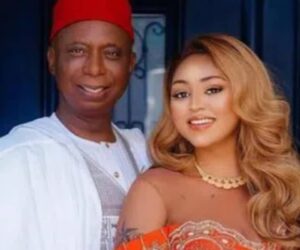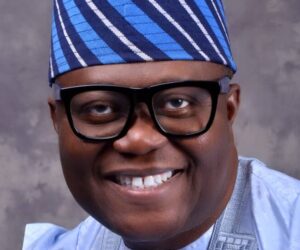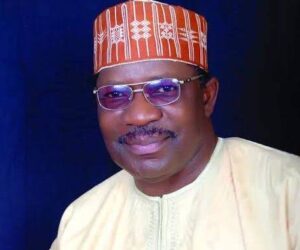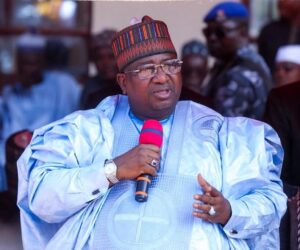One of the recurring features of Nigeria’s democracy since 1999 has been the constant wave of political defections from one party to another. While the motives behind these defections vary, ranging from personal ambition to survival instincts, the most celebrated and often cited reasons have been the lack of internal party democracy or, conversely, the compelling performance of a ruling party demonstrating inclusiveness and tangible progress. In Nigerian politics, success has a peculiar way of attracting loyalty.
The recent gale of defections hitting opposition parties in Sokoto State is a case in point. Many have attributed this political realignment to the spirited and visible leadership of Governor Ahmed Aliyu, whose All Progressives Congress (APC) administration has, within a relatively short time, recorded notable achievements across critical sectors. The state has seen investments in infrastructure, improved workers’ welfare, and a renewed sense of governance that resonates with both ordinary citizens and the elite.
During a grand reception organised to welcome prominent defectors from the Peoples Democratic Party (PDP), Alhaji Sarkin Gishiri, leader of the Sokoto State Traders Association, described the move as a turning point in the state’s political tide. According to him, “As influential members of Sokoto’s business community, we believe in contributing meaningfully to a government that is clearly working in the best interest of the people.” His sentiments echoed the wider mood among the defectors, who believe that aligning with a government delivering on its promises is both pragmatic and strategic. Also received by APC leader in Sokoto, Senator Aliyu Wamakko Magatakarda, was Alhaji Ladan Almustapha, the current chair of the Sokoto State Chamber of Commerce, alongside other key stakeholders.
This is not an isolated development. In April, PDP women leaders in the state, led by Hajiya Ummu Gada, joined the APC with a sizeable number of their supporters. Among them were the women leaders of Kware and Sokoto South Local Government Areas, Hajiya Shafa Yusuf Kware and Zainab Ibrahim, as well as the Kware Youth Leader, Alhaji Buhari Abubakar. Their reasons were not shrouded in ambiguity.
Hajiya Ummu Gada bluntly attributed their decision to the chronic absence of internal democracy in the PDP, a charge that has stalked the party for years and arguably contributed to its dramatic fall from power in 2015. Once celebrated as the “largest political party in Africa” with an audacious claim to rule for 60 uninterrupted years, the PDP’s arrogance became its Achilles’ heel. It barely managed 16 years before, metaphorically speaking, all its four tyres went flat. To this day, the party continues to grapple with factionalism, godfatherism, and a lack of reform.
She further praised the level of infrastructural development currently underway in Sokoto, remarking that the state “is beginning to look like Dubai with the scale of projects being executed.” From road rehabilitation to urban renewal projects, coupled with the prompt payment of salaries and improved welfare for workers, the APC government under Governor Aliyu is seen as one that keeps its word. In a political environment where promises often fade after campaigns, such fidelity is bound to shift allegiances.
At the heart of Nigeria’s political instability lies an uncomfortable truth: arrogance is often the undoing of dominant parties. History has shown that no party can take the people for granted indefinitely. While the PDP once strutted with a sense of invincibility, the reality of multiparty democracy caught up with it. Today, Nigerians are wary of any attempts to foist a one-party system on them, even as they gravitate toward parties and leaders who are visibly improving their lives.
President Bola Ahmed Tinubu captured this sentiment when he remarked that while he has no intention of wiping out the opposition, it is not his responsibility to help them put their house in order. The situation in Sokoto reflects this reality across several states: opposition parties weakened by their own internal contradictions and a ruling party that understands the art of performance-driven politics.
In truth, when defections are driven by the positive contributions of the government in power—by visible progress in governance and an inclusive approach to leadership—it becomes difficult to dismiss them as mere opportunism. Instead, they represent a form of political endorsement that opposition parties find hard to counter. It is, in a sense, a double jeopardy for them: they cannot convincingly challenge the progress recorded while out of office, and at the same time, they struggle to prevent their members from switching allegiance to a performing rival.
What is unfolding in Sokoto, therefore, is not just another chapter in the book of defections. It is a reminder of a fundamental principle in Nigerian politics: performance has consequences, and non-performance has even greater ones. For the opposition, survival demands more than rhetoric; it requires introspection, reform, and a willingness to compete not with propaganda, but with results.
Governor Aliyu may not have set out to “demystify” the opposition deliberately, but by focusing on governance that touches lives, he has done just that. In the marketplace of Nigerian politics, results remain the most potent campaign tool. Opposition parties in Sokoto and beyond would do well to take notes.
Sani writes from Sokoto, Sokoto state








